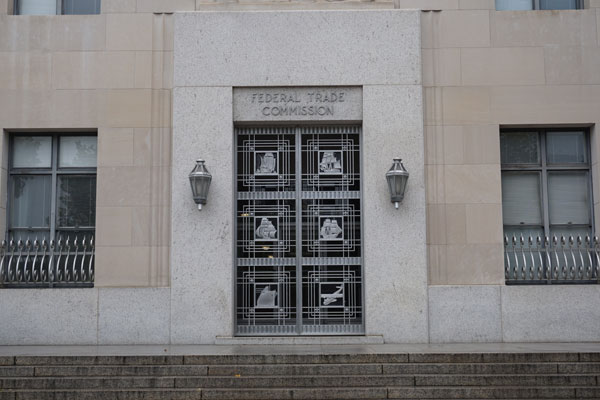FTC fails to block Microsoft’s Blizzard acquisition

[Federal Trade Commission. Photo Credit to Unsplash]
The Federal Trade Commission (FTC) recently lost a lawsuit against Microsoft Corporation over its acquisition of a video game company called Activision Blizzard.
Microsoft had already announced on January 18, 2022, its intention to acquire Activision Blizzard for $68.7 Billion.
However, this move triggered an investigation by the FTC due to concerns over antitrust issues and Microsoft’s potential monopoly within the gaming industry.
While Microsoft's Xbox and Sony’s PlayStation have become hostile competitors in a race to dominate the video game console market, the acquisition of Activision Blizzard could pose a significant threat to Sony.
Because many popular console games come from Activision Blizzard, Microsoft making its games exclusive on Xbox platforms could severely weaken the attractiveness of PlayStation over Xbox, ultimately resulting in potential revenue losses.
Although Microsoft and Sony eventually reached a 10-year deal to keep the renowned game series Call of Duty on PlayStation, this agreement does not include many other popular Activision Blizzard games.
This raises concerns about how long PlayStation can remain competitive against Xbox.
Both Microsoft and Sony have attempted to secure the loyalty of their consumers by exclusively releasing certain games on their respective gaming platforms, and Activision Blizzard games will likely follow a similar fate.
Initially, FTC claimed that the merger should be blocked because the deal to acquire Activision Blizzard would suppress its competitors in a growing game industry.
In response to the FTC, Microsoft argued that “this merger will benefit gamers, employees, and competition globally”, noting that Call of Duty itself will not be drastically changed or play a key role in the video game industry.
The judge denied the FTC’s request for a preliminary injunction, stating that “the record evidence points to more consumer access to Call of Duty and other Activision content”.
The judge also concurred with Microsoft’s claim that the acquisition will not substantially harm the competition.
The ruling produced a favorable outcome for Microsoft, as it demonstrated the company’s commitment to avoid maintaining a position of illegal monopoly and to extend the accessibility of its games to other platforms like Nintendo Switch.
With the acquisition of Activision Blizzard, Microsoft would add its games to the Game Pass subscription service, which could offer many popular Activision games at a more affordable cost to gamers.
Furthermore, the deal might empower Microsoft to compete more effectively with other prominent companies in the game industry, such as Nintendo, Google, Amazon, and Apple.
This could potentially result in a greater variety of high-quality games available to consumers.
Still, regulators and competitors remain uncertain about how Microsoft will address regulatory concerns without harming the game industry.
Microsoft must also convince regulators worldwide of its commitment.
Although the courts ruled that Microsoft's promises were sufficient, the gaming industry's future and the potential impact on consumers remains uncertain.
Only time will unveil the true implications of this deal.
Overall, the outcome of this deal will heavily depend on Microsoft’s sincere commitment to maintaining healthy competition and proving to critics that Microsoft will not use the acquisition to undermine its rivals.

- Kijoo Park / Grade 11 Session 1
- Branham High School

![THE HERALD STUDENT REPORTERS [US]](/assets/images/logo_student_us.png)
![THE HERALD STUDENT REPORTERS [Canada]](/assets/images/logo_student_ca.png)
